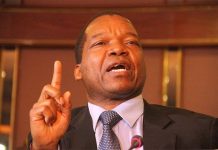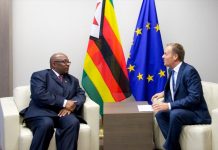The International Monetary Fund’s Executive Board has noted with concern that Zimbabwe is facing an economic and humanitarian crisis exacerbated by policy missteps and climate‑related shocks.
“The macroeconomic stability remains a challenge: the economy contracted sharply in 2019, amplified by climate shocks that have crippled agriculture and electricity generation; the newly introduced ZWL$ has lost most of its value; inflation is very high; and international reserves are very low,” IMF’s Executive Board noted.
The climate shocks have magnified the social impacts of the fiscal retrenchment, leaving more than half of the population food insecure. With another poor harvest expected, growth in 2020 is projected at near zero, with food shortages continuing.
Zimbabwe remains in debt distress, with large external arrears to official creditors, and encouraged the authorities to give impetus to re-engagement efforts and debt management and transparency.
“The Zimbabwean government has yet to define the modalities and financing to clear arrears to the World Bank and other multilateral institutions, and to undertake reforms that would facilitate resolution of arrears with bilateral creditors”.
President Emmerson Mnangagwa’s administration that came to office following the disputed 2018 elections adopted an agenda focused on macro stabilization and reforms. This was supported by a Staff Monitored Program from the IMF, adopted in May 2019, but is now off-track as policy implementation has been mixed.
The government has been urged to make a concerted effort to ensure economic and social stability through the adoption of coordinated fiscal, monetary and foreign exchange policies, alongside with efforts to address food insecurity and serious governance challenges.
IMF has also blasted Zimbabwe for failing to address governance, corruption challenges and enforce of the rule of law to improve the business climate and support private‑sector‑led inclusive growth.















